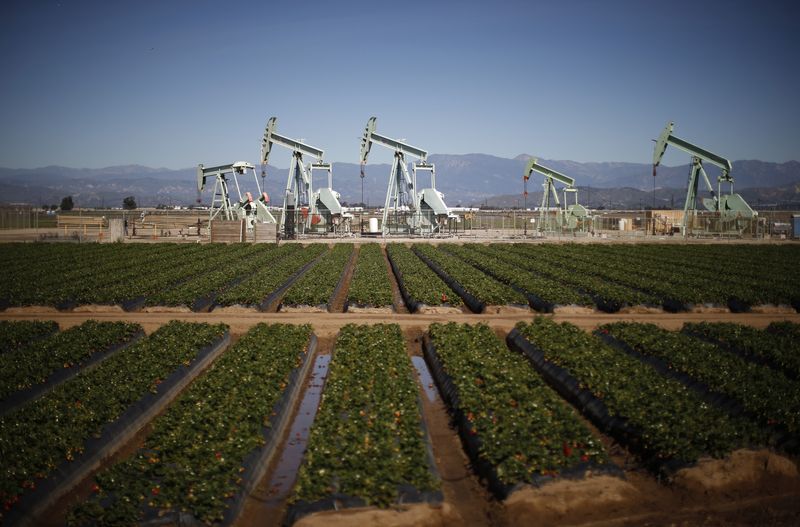By David Gaffen and Stephanie Kelly
(Reuters) - Bulls have surged into the U.S. crude oil options market in recent days as futures touch highs not seen in a decade, betting that crude's rally will persist, according to analysts and exchange data.
The global oil market was already tight even before Russia invaded Ukraine last week, which has since sent benchmark Brent and U.S. West Texas Intermediate (WTI) crude futures soaring over 15% to around 10- and 14-year highs, respectively.
The United States and allies imposed sanctions on Russia that, while not explicitly targeting Russia's daily exports of 4 million to 5 million barrels, has severely hampered its ability to sell its crude. Russia's exports account for roughly 8% of the global oil market, trailing only Saudi Arabia.
Traders see an opportunity to buy options - bets on a direction of a commodity's price - and options volumes have surged in recent weeks, and especially since the invasion on Feb. 24.
Between Jan. 19 and Feb. 9, the number of U.S. crude options contracts traded on CME averaged roughly 126,000 daily. Since then, the average has spiked to 178,000 daily, according to exchange data, including the first two days in March, when more than 240,000 contracts traded.
Analysts said activity has been strongest in call options - a bet on U.S. crude prices rising in coming weeks and months.
"You’ve got investors in the market now looking longer-term and putting in plays to try to see what’s happening, and it is stronger to the upside on higher prices," said JB Mackenzie, managing director at Charles Schwab (NYSE:SCHW) Futures & Forex LLC. "The indication is for higher prices."
Mackenzie noted that volumes for options that expire every week have also increased as the price of crude has risen.
Brent briefly touched nearly $120 a barrel on Thursday, its highest since 2012, and WTI surpassed $116, a level not seen since 2008, before pulling back.
JP Morgan analysts said on Thursday that Brent will average $110 a barrel in the second quarter.
Options traders can also capitalize on volatility to profit without ever buying crude oil futures contracts. The market has swung wildly on a daily basis of late, boosting the Crude Oil Volatility Index (OVX), a measure of the market's past and expected swings, to 63, compared with an average of 40 over the past 200 days.
WTI crude oil options that expire in mid-April at a price of $120 a barrel - a bet that futures will surpass that price by that time - were the most popularly traded on Wednesday, according to Robert Yawger, executive director of energy futures at Mizuho.

He said speculators have been piling into positions in WTI calls, even though he characterized the WTI options market as favored by producers who use put options - contracts that protect against prices falling.
"The commercials use (U.S. crude) to hedge, but it's gone the other way here because the situation is so out of control," Yawger said.